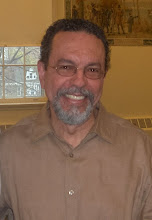Today we understand friendship differently. If I were to use or promote work that was considered substandard, others may say: “he does it because he and the author are friends.” I’ve actually been in situations where I’ve taken a minority position out of loyalty to a friend. I’ve done so for the sake of reciprocity of feeling rather than seeking to re-pay a similar favor or expecting to be granted a favor in the future. In that sense, my obligation has been subjective and thus different from the obligation entailed in the classical understanding of friendship.
People will argue about the meaning of subjectivity and its relationship to objectivity until they are blue in the face and will not come anywhere near resolution, agreement, or consensus. Similarly, it is very difficult to fully understand what propels individuals to engage one another, regardless of the basis for engagement; it matters little whether they do so for subjective or objective reasons—why we do it remains obscure more often than not.
Some will say that identity induces engagement. It is “natural” for like people to approach each other, seek each other out. “When in Rome, do as the Romans do”, becomes “if you are Roman, you will hang out with Romans.” It is easy to shatter this assumption. I do it all the time when I tell people that I am not married to a Puerto Rican or when I say that I don’t care much for merengue or that I like opera. Yet, I do understand the power of identity and have acted under its influence more than a few times. Thus, if friendship is bricks and mortar to relations based on reciprocity, identity is often the bricklayer that puts everything together and gets friendship started.
I’ve experienced this many times and most recently did so in Puerto Rico. On the night of November 6, 2009, I walked into the lobby of Intercontinental Hotel in Isla Verde, and to my delight a salsa trio was playing. Thanks to the marvels of technology, the sound of the group, which consisted of keyboards, congas, and a singer/percussionist, included a full brass and reed section. The sound was clearly artificial but it was not jarring. The singer had a good voice and was a great sonero. His maraca technique was superb and during the montunos he sang and played the cowbell. I think that to sonear and play the cowbell without going cruzao on the cowbell is not easy, but this singer stayed in clave seemingly without much effort. I thought I recognized the singer and at the end of their penultimate song I walked over to him. “Aren’t you the son of Andy Montañez?,” I asked. I had seen him last year, doing coro for his father at the Albany Latin Fest. He was happy to be remembered. I sat at the bar and at the end of the set, he came to me and we struck a conversation. I asked him about his sister Lisa, his years in Venezuela, and we talked about his father’s voice. When the subject of Montañez, Sr. came up, Andicito, as he calls himself, mentioned that Andy, Sr. would be playing at the Conrad Hotel in El Condado the following night. It was a private party, hosted by a physicians association, but I could come if I wanted to. No, “You must come,” he said, “Do you have a suit and tie? (“I only brought guayaberas,” I said) It doesn’t matter, you come with me. Here’s my card. Call me tomorrow around 9 o’clock and I’ll meet you there and I’ll get you in. You have to call me, ok? Llámame, ok? ¡No me falles! ¿Me vas a llamar? (“Sí, hombre,” I interjected) So, we go and hang out, you’ll see what a band Papi has, es un bandón, and then we come back here. Pero, llámame, ¿ok?, ¡No me falles!”
I left the hotel that Friday night, floating through the air. The following day I did as agreed and had the chance to hear Andy Montañez, Sr. and his orchestra. It didn’t matter that there were over one hundred people at the party. To me it felt like a private audience. Andicito introduced me to his father and his brother Harold; to his father’s friends and to just about every one of the musicians in the band, who, with the exception of one of the trumpet players, turned out to be a collegial bunch. After the party I told Andicito I would see him back at the Intercontinental, where he was due to finish his regular Saturday night gig. At the Intercontinental, we talked some more, had a drink, and then said our goodbyes.
What made Andicito Montañez, who did not know me from Adam, talk to me as if we had been longtime friends? Why did he embrace me in such a way? I was a part of his inner circle instantly, without warning and for no real good reason. This was not an instance of friendship in the classical or modern sense. Friendship develops over time. Yet, I felt that he and I had become instant friends. I still cannot fully explain it. This impulse that some people have to treat perfect strangers as if they were longtime friends has, for sure, some basis on identity, but it must also be driven by something more personal, stronger and deeper. I don’t know what it is. But it is clear to me that identity is not just power; it also has power, it makes people act in strange ways. In other words, it makes A do B under circumstances in which A should do C. It expresses itself as a relationship but it can truly come into being from nowhere. For the time being, I’ll leave it at that.


